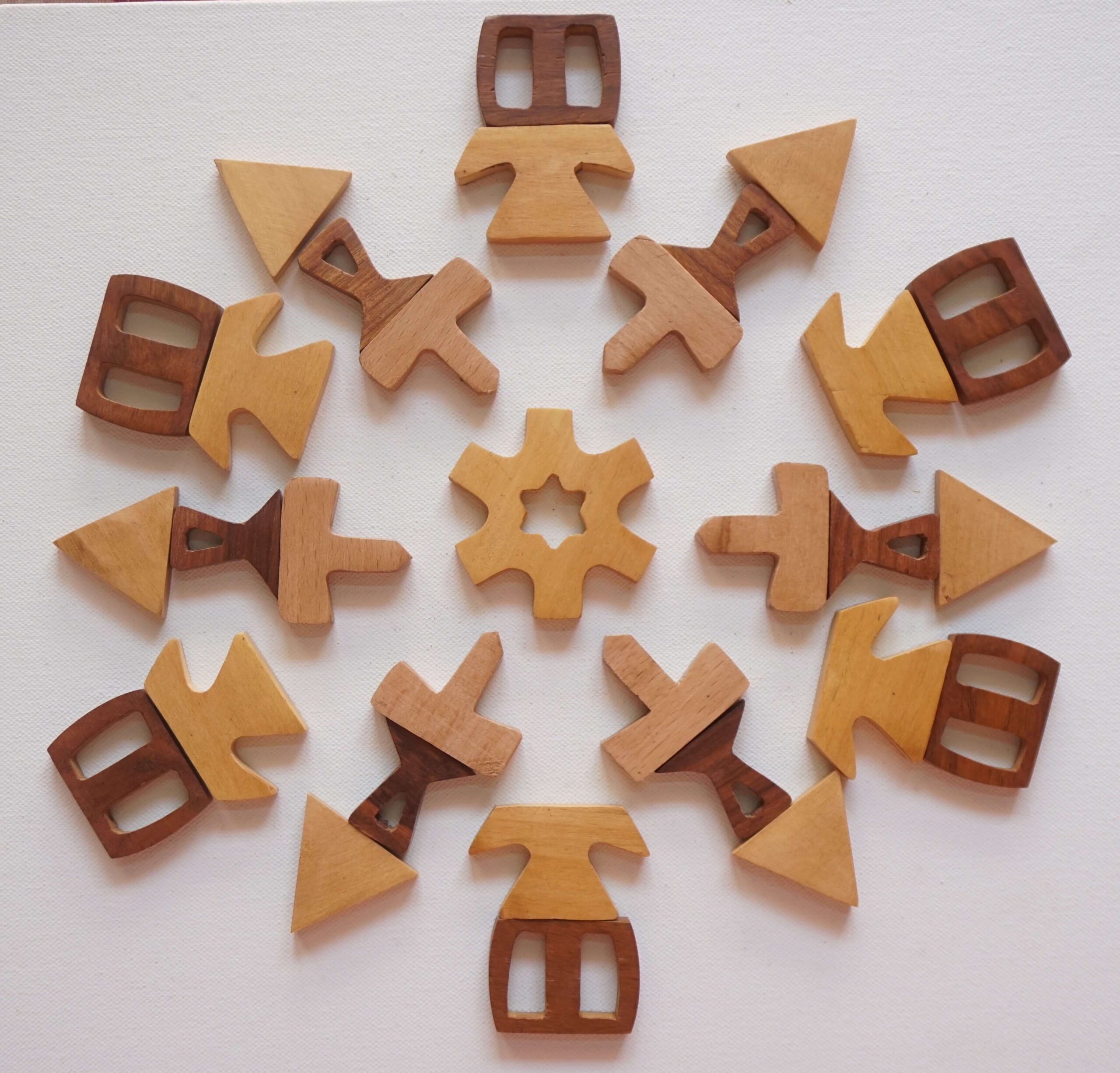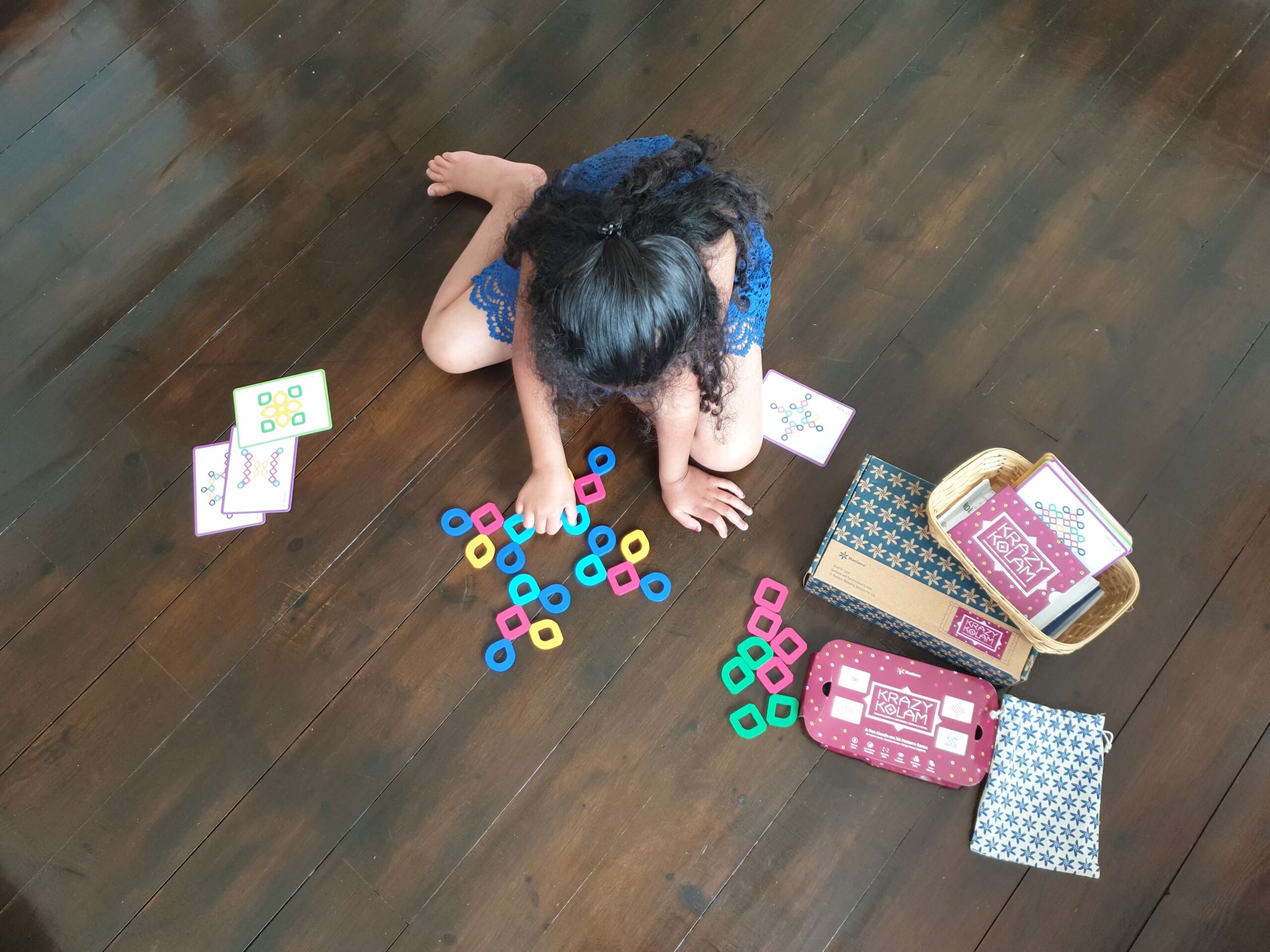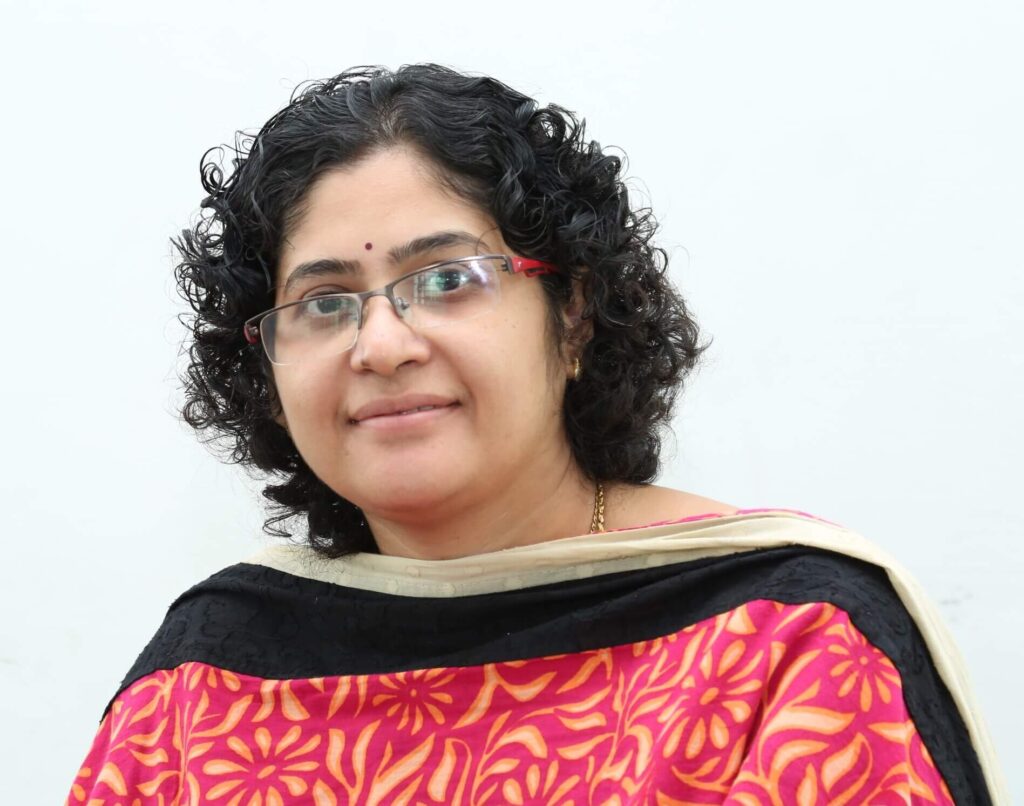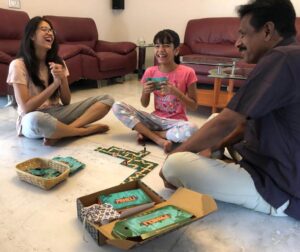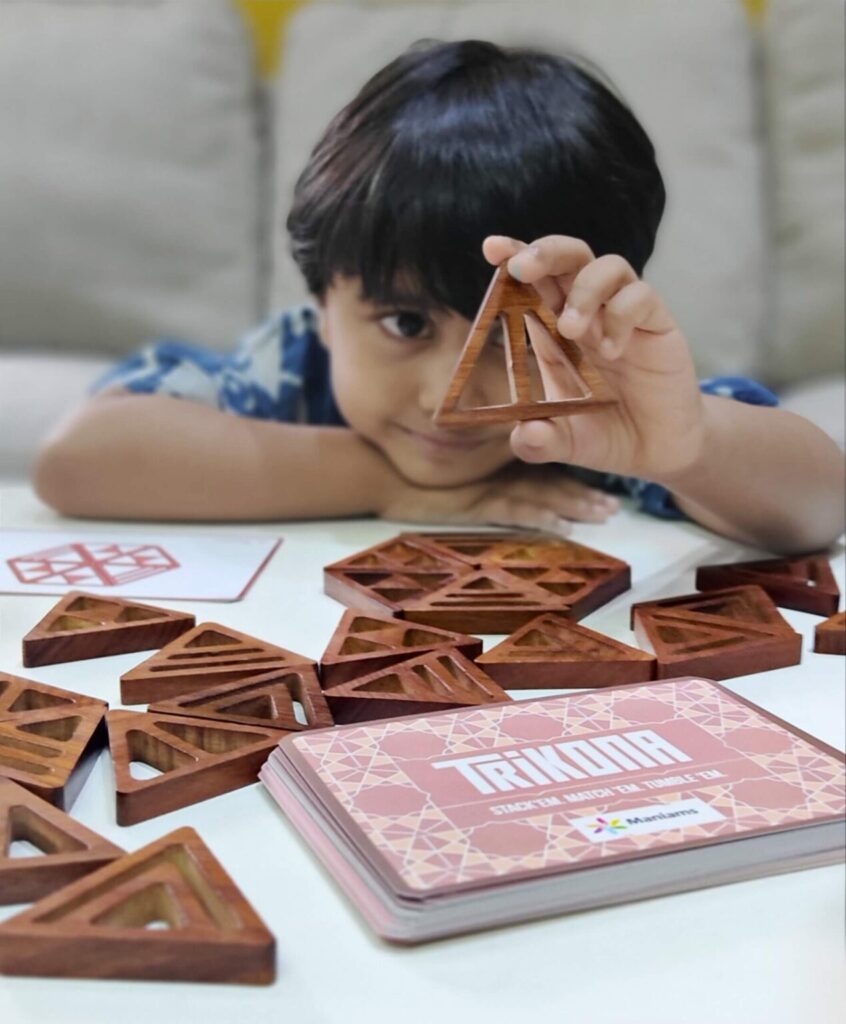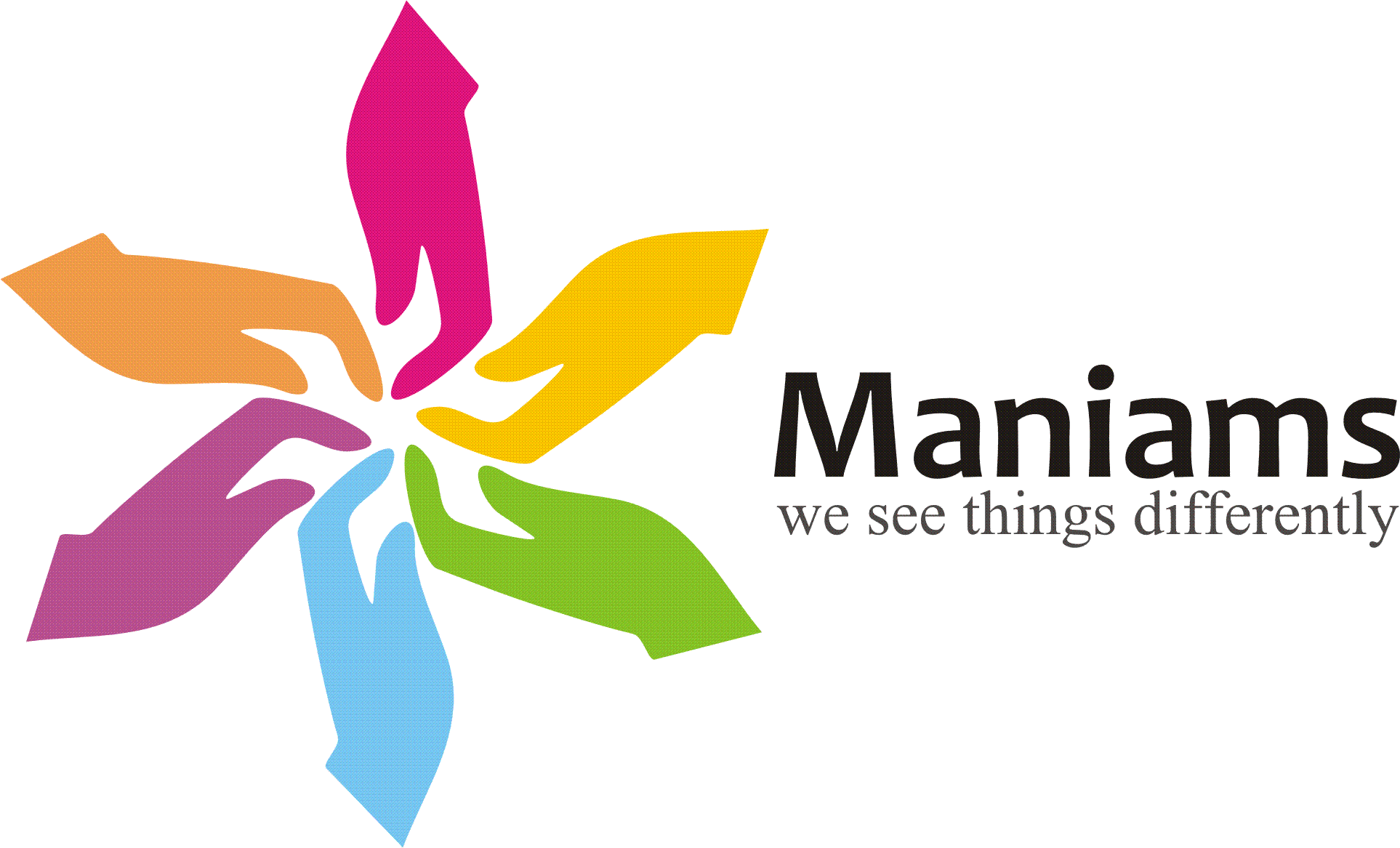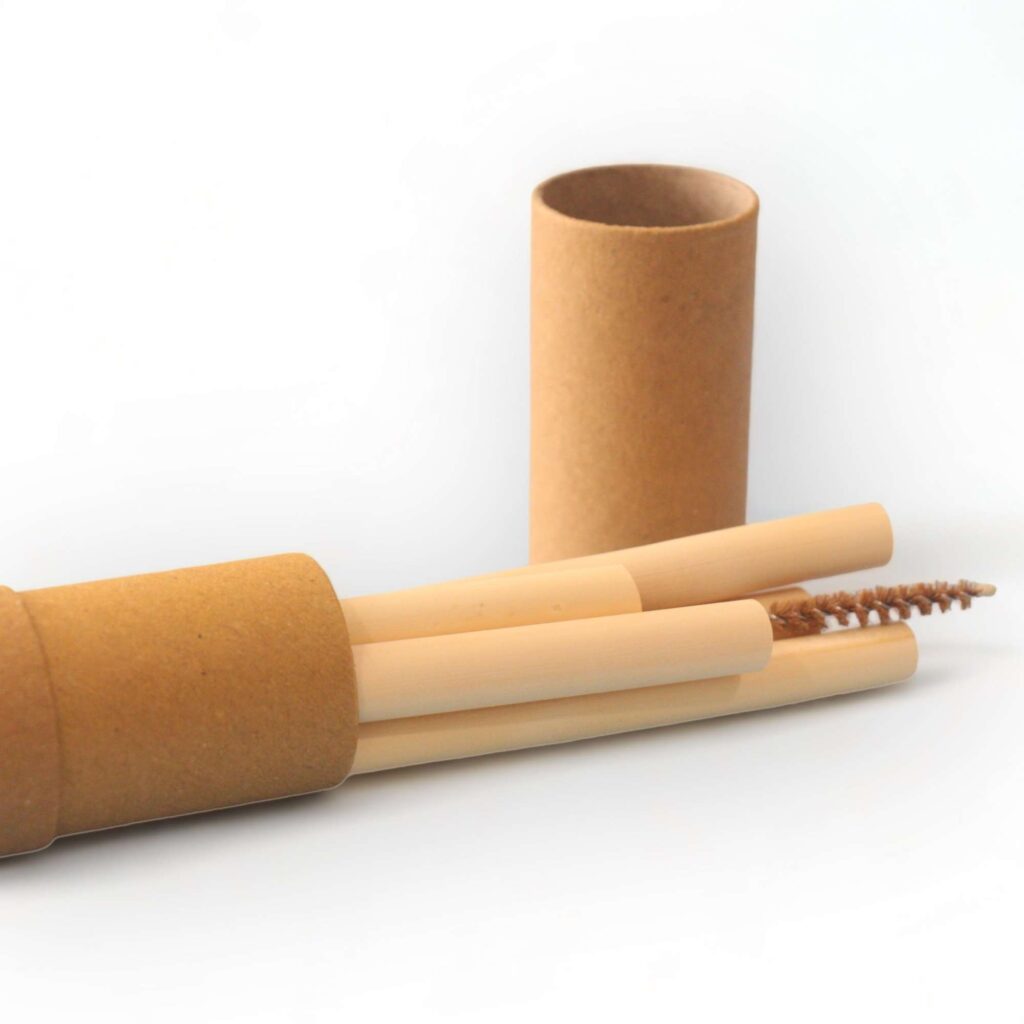Kanaka Ananth’s destiny in the toy design industry links all the way back to her childhood. She narrates incidents through her life, piecing together small details that linked up to lead her to shape Maniams, along with her late brother, Karthik Ananth, to the unique design firm it is today.
Everyone who knew Kanaka as a child, recognized that she was destined to do something in the creative industry. While growing up in Mumbai, she not only competed in every drawing or painting competition she could get her hands on, but also collected accolades in popular competitions hosted by Camlin and Young World (A subsidiary of The Hindu.) It was her family’s move to Germany, early in her childhood, that greatly impacted her. “Everything in school was so hands-on. Even history and geography were taught practically,” she recalls.
Her family moved back to Mumbai soon afterwards, only to decide that they wanted to get in touch with their South Indian roots. Her father’s new position as the CEO of South India Viscose Pvt Ltd (SIV) led them to Coimbatore, where they decided to build a house. “That was when I met an architect,” Kanaka says, “My father would always try to get everyone involved in everything that happened in the house, so we would have discussions about what we wanted with the architect.” Very soon, these interactions with the architect and the experience of watching the design materialize instilled in young Kanaka a newfound realisation of her passion for architecture.
“Back then, there were no architecture colleges in Coimbatore and my mom was not too keen on sending me out to study a five-year degree program that involved staying in a hostel.” It was a struggle, but Kanaka and her father travelled to Anna University in Chennai for counselling. “I got a seat in TCE. We didn’t even know what that was, until someone told us: TCE is Thiagarajar College of Engineering in Madurai! It’s well ranked, why do you look like this? It’s an amazing opportunity for your daughter!” The father and daughter looked at each other before the former responded, “Kanaka, it’s up to convince your mother.”
Surpassing all hurdles, Kanaka finally moved to Madurai and enrolled as an architecture student at Thiagarajar College of Engineering. “The faculty would recognize my style when they came across my presentation. I had always tried to do something different with the given brief.” Over the years, she and her professors began to realise that her thought process was far too out-of-the-box for her to be classified as a ‘practical architect.’ During her final year, her thesis involved the design of an amusement park. Unfortunately, this period of self-discovery coincided with her only brother’s diagnosis of kidney failure. “My father donated his kidney to save my brother’s life, so I was in a hospital room, taking care of my brother and my father while drafting my sheets, only leaving to complete my viva and come back.”
This was not only a testing time for Kanaka, but an incident that decided her fate. “I missed the GATE exam which was required to pursue M.Arch because it was on the same day as my brother’s surgery, so I took the National Institute of Design (NID) exam in Bangalore, because in those days it was the closest exam center to Coimbatore. “I was one of the six students who was admitted for the post-graduation course. Ten days after completing my architecture degree I went to NID for the interview where I applied for two streams: product design and toy design. Toy Design was a course that had just begun that year,” Kanaka recounts.
The liberal ‘NID culture’ did raise a few eyebrows back then but Kanaka’s father supported her ambitions all the way, even when she decided that she was going to be one of the first few students in India to graduate with a degree in Toy Design. They had no clue about what the prospects were.
While studying at NID she joined Funskool as their first Toy Design Intern. “Nobody had really ever heard of a toy designer before,” she explains how most of her colleagues were engineers who were all men. The lack of diversity was a tough hurdle to cross. “Most of the time I would find myself explaining what a toy designer could do to the industry.”
That was followed by her final year project with Creative Education Aids, a leading player in the Indian toy industry based in Delhi. “Due to the lack of awareness about design, industries never quite understood the benefits of design research and user analysis, and the importance of a designer in product development” Kanaka sighs. She designed ‘Fast-track’, providing a gamified experience of learning how to spell while racing cars and ‘Amazing Me’, a game aimed at improving interactions between parents and their children, were some of her projects that were taken to the market. Following her graduation, Kanaka continued to freelance with the company while joining as a Young Designer at the Toy Design department at NID.
Ten years had passed since Kanaka left home from Coimbatore. “My parents insisted that I come back but South India barely had any opportunities in the toy industry.” Just then, NID professor, Prof. Balaram Singanapalli approached the young designer to assist him in building a new design school in South India, coincidentally in Coimbatore! That was the beginning of Kanaka’s 13-year long career as one of the pioneer educationists at the DJ Academy of Design.
Kanaka’s brother, Karthik had to undergo a second kidney transplant. He quit his corporate job and took up Maniams, a business that was being run by their mother since their childhood. Karthik transformed the business from a distribution company to a women-centric organisation focused on consulting and content creation. “Many women find it difficult to get back to their careers after marriage and child-birth so Maniams allowed them to work from their homes and coordinate with project managers,” Kanaka explains that they were involved in making the instruction manual for the metro project.
A few years later, Karthik co-founded Sukino Healthcare Solutions, focused on palliative care, along with his former colleagues. “Being someone who required dialysis regularly, he found a huge need to develop the palliative care sector in India,” says Kanaka. Unfortunately, the toy designer lost her partner in crime (and enterprise) late last year. “Luckily he witnessed Sukino being funded a few days before his death. He was happy to see that one of his start-ups had prospered and at that moment handed over Maniams to me to take it forward.”
The designer wiped her tears and rolled up her sleeves as she realized that it wasn’t very common to see design services being provided in tier-2 cities (because almost everyone dreams of making it in a big city.) Design was her area of forte and she had a network of about 500 design students, so she recruited a few of the graduates and started providing design services to small companies. They also started conducting workshops because a lot of the companies they got in touch with had been looking to train their employees in design thinking.
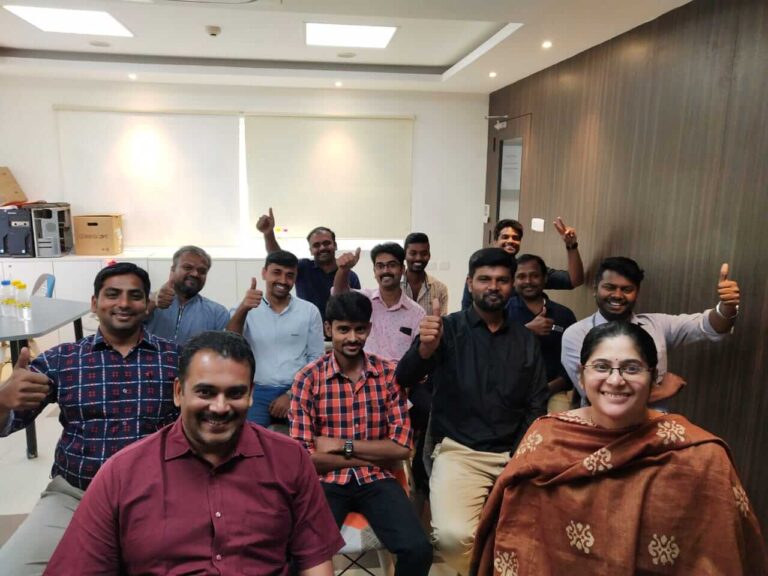
Although Maniams executed on a variety of design briefs—from UI/UX to product design—there has always been a special focus on toy design. “I knew I was taking a huge risk, because I would have to invest in it upfront, but I took up the challenge. I believed that if I designed well thought out games it would do well in the market.”
Guided by that thought and ambition, Kanaka set out on a mission to design toys that were inspired by elements of Indian culture because most of the popular games in the market were so Westernized. Following her brother’s footsteps, Kanaka found this to be the perfect opportunity to bridge another gap. She gathered artisans and got them involved in the process. After a lot of back and forth—learning, experimenting and coordinating different processes, Kanaka accomplished creating not just eco-friendly and sustainable games, but creating a name for Maniams as the winner of the Toycathon. “I am lucky to have my husband Ram, who quit his IT job, to support me in this journey and my in-laws who have encouraged and supported me throughout this venture” Kanaka concludes.
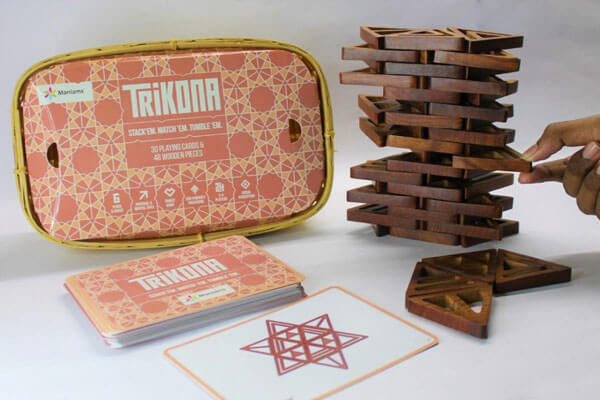
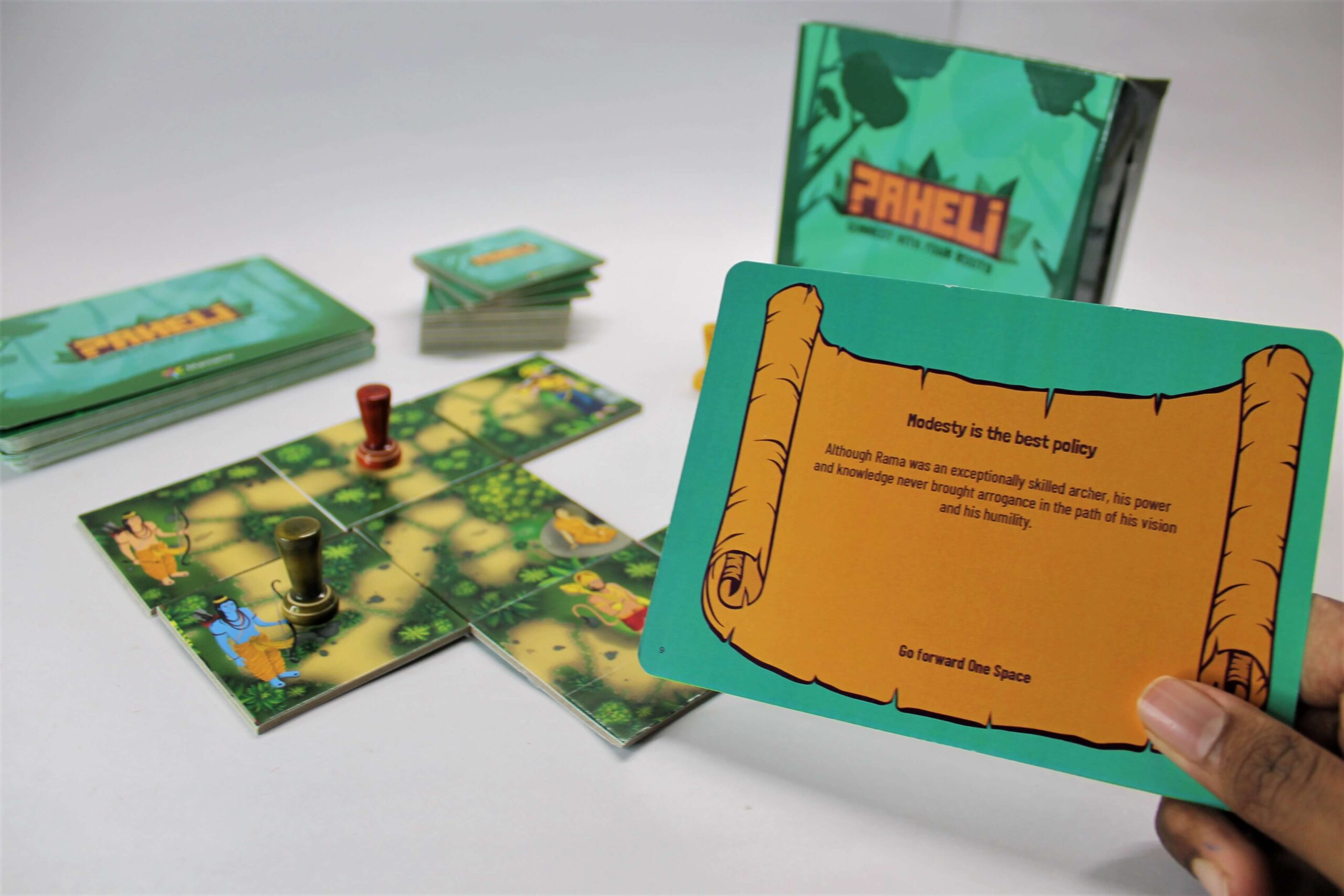

The Toycathon is an inter-ministerial initiative organized by the Ministry of Education’s Innovation Cell. Krazy Kolam, Rangolio, Trikona, and Paheli are the four indigenous games, that were launched by Maniams during the First All India Virtual Toy Exhibition 2021. Paheli a game based on Ramayana, helps children understand the symbols, festivals and their meanings. Why do we wear bangles? Why do we celebrate Onam, Pongal, Raksha Bandhan? Why do we tie mango leaves on special occasions? What’s the significance of kumkum? The game entails more than three hundred riddles about our beautiful Indian culture. Krazy Kolam, Trikona & Rangolio are games inspired by our amazing Indian motifs and patterns. They are design patented products that are child-friendly and packed in woven bamboo boxes made by artisans from all over India.
With the toy industry slowly gaining momentum in India, there is a lot more to look forward to from Coimbatore’s toy designer Kanaka and her socially conscious design initiatives through Maniams.
